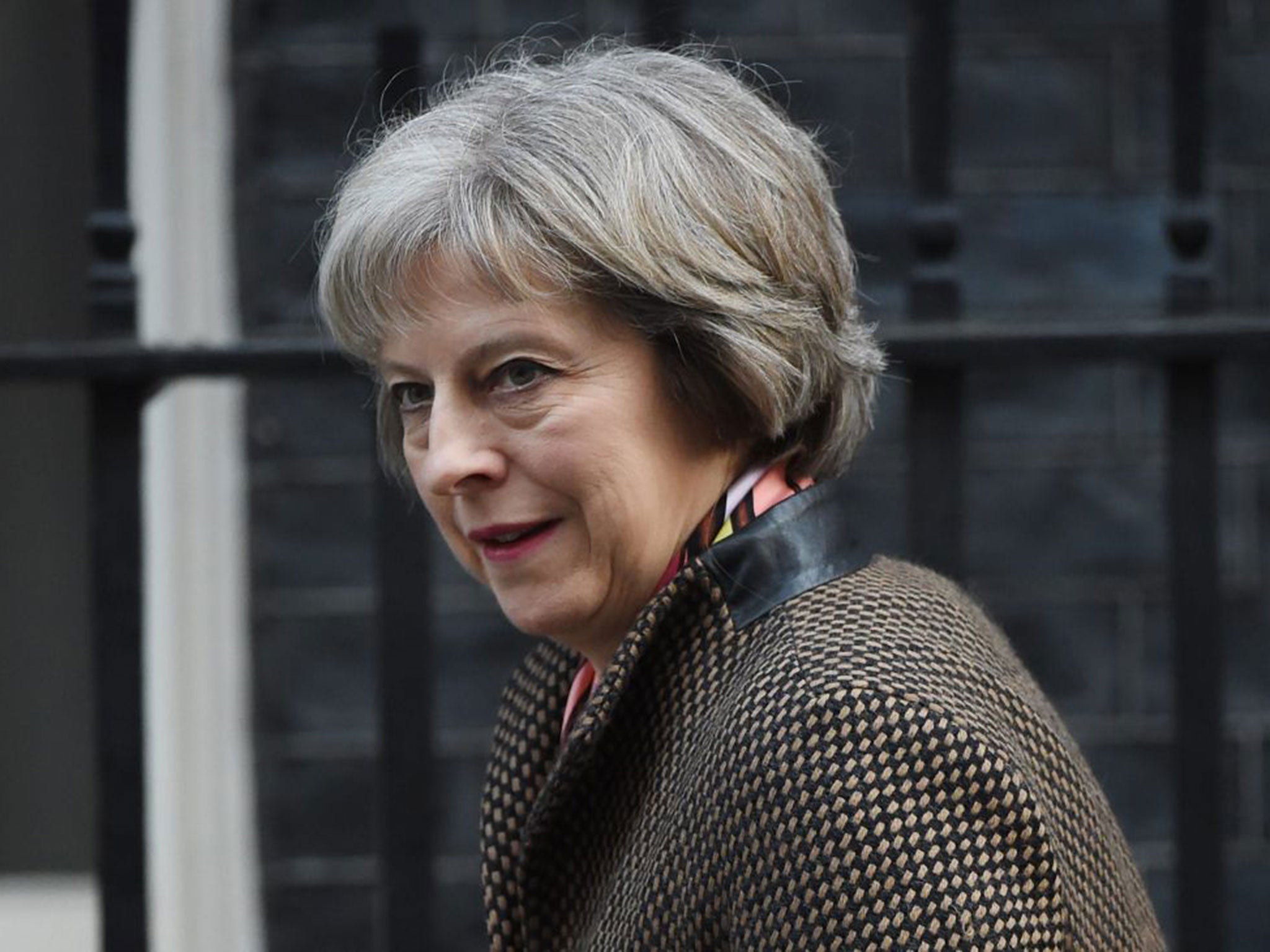Mental health care 'in danger' if Theresa May takes UK out of European Convention on Human Rights
Exclusive: Top psychiatrists warn mental health care could be set back years if Government goes through with manifesto promise

Your support helps us to tell the story
From reproductive rights to climate change to Big Tech, The Independent is on the ground when the story is developing. Whether it's investigating the financials of Elon Musk's pro-Trump PAC or producing our latest documentary, 'The A Word', which shines a light on the American women fighting for reproductive rights, we know how important it is to parse out the facts from the messaging.
At such a critical moment in US history, we need reporters on the ground. Your donation allows us to keep sending journalists to speak to both sides of the story.
The Independent is trusted by Americans across the entire political spectrum. And unlike many other quality news outlets, we choose not to lock Americans out of our reporting and analysis with paywalls. We believe quality journalism should be available to everyone, paid for by those who can afford it.
Your support makes all the difference.Theresa May’s call for the UK to withdraw from the European Convention on Human Rights (ECHR) risks derailing the Government’s pledge to improve care and protection for mental health patients, the country’s top psychiatrist has said.
Dropping out of the ECHR, which the Home Secretary proposed in a speech last month, and scrapping the Human Rights Act, which was a Conservative manifesto commitment, would drastically reduce the legal avenues open to people with mental illnesses to challenge decisions about their care, said Professor Simon Wessely, president of the Royal College of Psychiatrists (RPsych).
Mrs May said last month that the ECHR added nothing to the UK’s prosperity and could “bind the hands of Parliament”. Downing Street has said the Prime Minister has not ruled out withdrawing the UK from the ECHR, while replacing the UK’s own Human Rights Act with a British Bill of Rights is Conservative party policy.
But in an article co-authored by RPsych policy analyst Greg Smith, Professor Wessely said that either reform “should be of serious concern to anyone providing or receiving mental healthcare”.
“Both threaten to remove legal frameworks which have quietly been safeguarding and bolstering the rights of psychiatric service users for decades,” they write.
The Coalition government legislated to achieve “parity of esteem” between mental health and physical health services by 2020 – meaning that both should be considered of equal importance. But Professor Wessely warns that leaving the ECHR or scrapping the Human Rights Act, or both, could wreck that ambition.
While Mrs May wants both, but is backing the Remain campaign in the EU referendum, the Justice Secretary Michael Gove wants to remain in the ECHR, but leave the EU, and scrap the Human Rights Act.
Professor Wessely said that either course of action would remove legal mechanisms that had made “huge strides in closing the current gulf” between physical and mental health support, and could continue to secure improvements.
“If the Government is serious about parity of esteem – which it certainly professes to be – then neither May nor Gove’s proposal should be on, or anywhere near, the table,” he and Mr Smith conclude.
Among the gains secured through the ECHR, they list a number of legal victories which led to changes in the law, such as those fought for by the mental health charity Mind in the 1980s, which guaranteed regular reviews of detentions under the Mental Health Act
The Human Rights Act, meanwhile, has helped secure a legal precedent that mental health hospitals must demonstrate that a patient should remain in detention, rather than the burden of proof falling to the individual to demonstrate they must be released. It has also guaranteed a change in the law allowing mental health patients to challenge decisions in cases where family members are designated as their nearest relative for legal purposes, despite a history of abuse.
A Home Office spokesperson declined to comment on the RPsych article.
Join our commenting forum
Join thought-provoking conversations, follow other Independent readers and see their replies
Comments